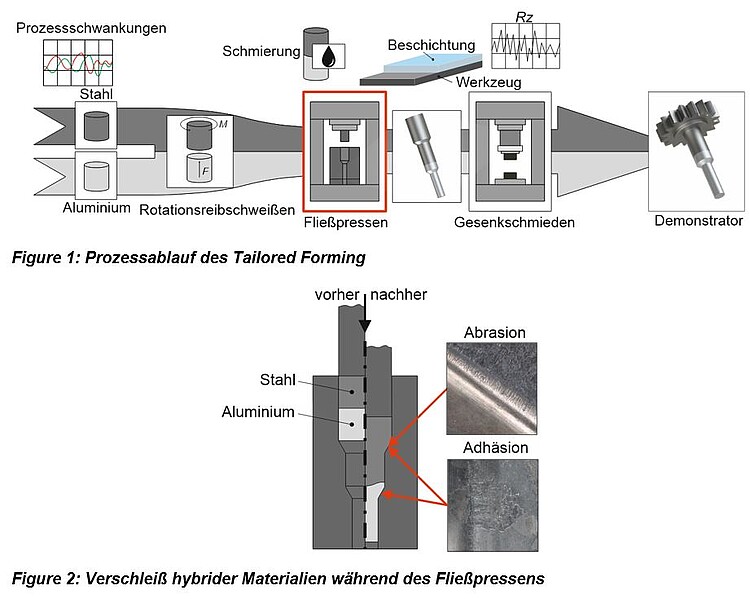Determination of the deformation capacity and the resulting component properties during extrusion of serially arranged hybrid semi-finished products

| E-Mail: | massivumformung@ifum.uni-hannover.de |
| Year: | 2019 |
| Funding: | Deutsche Forschungsgemeinschaft (DFG) – SFB 1153 – B3 – Fördernummer 252662854 |
In forming technology, the novel approach of Tailored Forming is used to produce load-adapted components from different material combinations. In connection with the reduction of CO2 emissions through lightweight construction, this approach plays an important role in industrial applications. By using high-strength materials in stressed areas and light metals in less stressed areas, for example, weight can be saved without compromising component strength. In the third funding period of the sub-project B03, the aim is to increase process stability in the forming process chain (see Figure 1). Wear was identified as an important factor with regard to sensitivity in impact extrusion, which has a negative effect on tool and component quality after a certain series. The aim is therefore to develop tools with increased lifetime that produce reproducible and high-quality components. Unlike monolithic semi-finished products, hybrid semi-finished products are subject to superimposed wear on the extrusion shoulder, which in the case of steel and aluminium is characterised by alternating adhesive and abrasive loads (see Figure 2). As this problem is still relatively new and unexplored, the interaction and influence of the two wear phenomena on the impact extrusion tools will first be investigated. For this purpose, it is necessary to investigate suitable wear protection measures for the Tailored Forming process. This is analogous to preliminary work in which surface treatments have already been investigated for die forging. In this case, aspects such as coatings, tool topographies and workpiece lubrication are therefore focused on in order to stabilise the process chain with regard to both economic and ecological criteria.




















